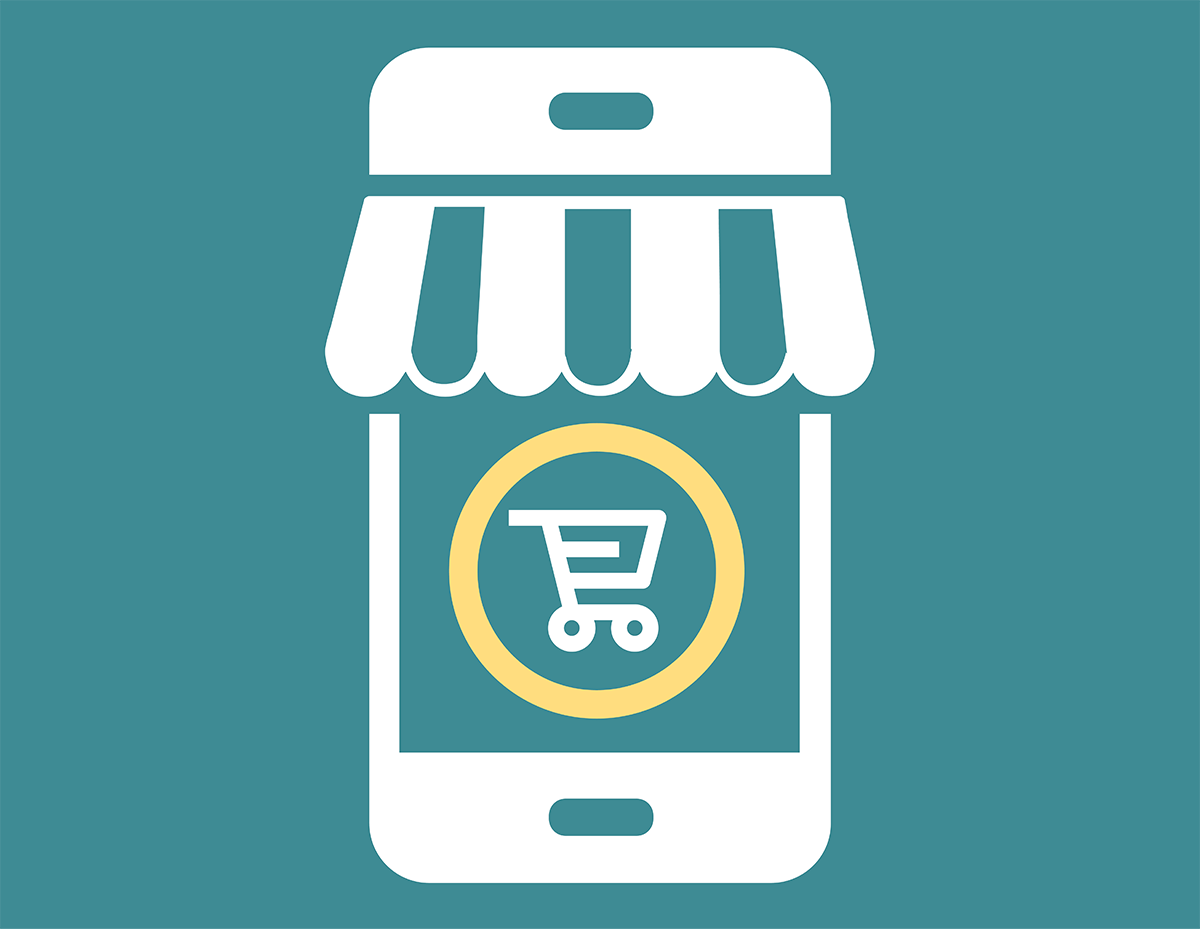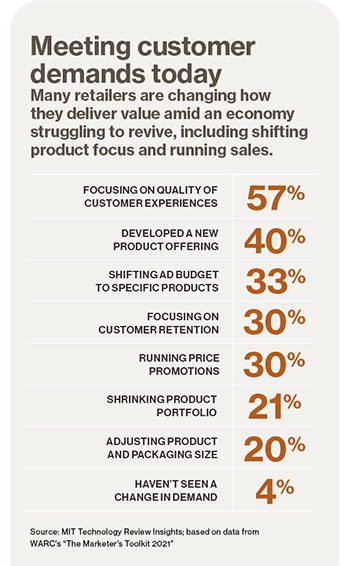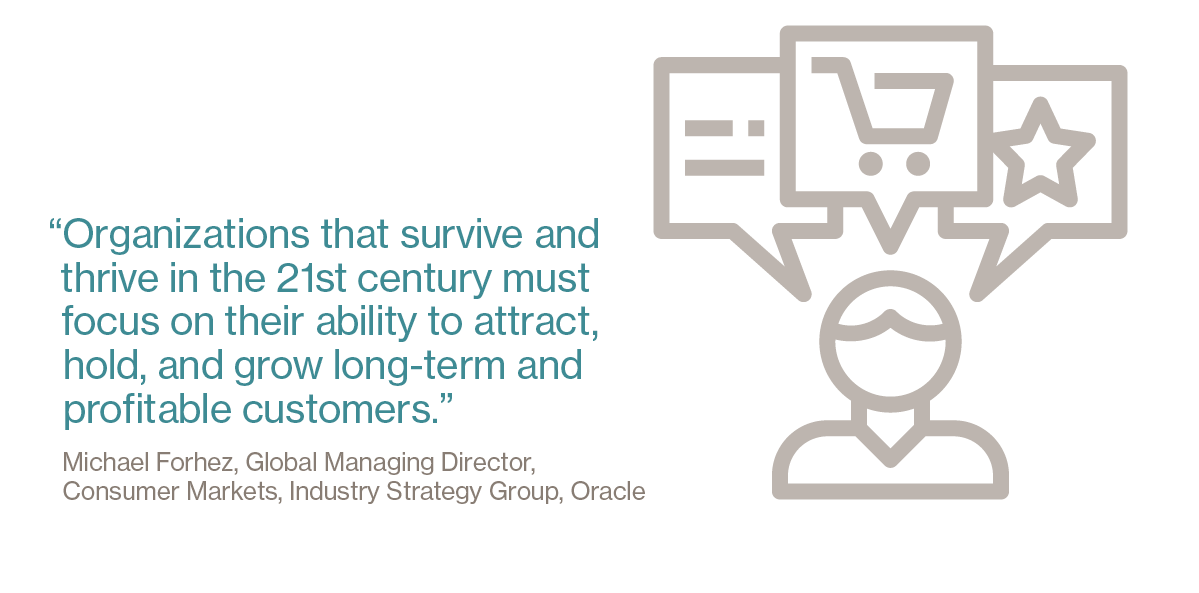Subtotal: 31,70€ (incl. VAT)
New business models, big opportunity: Retail
Now is a tough time to be a retailer. Even before the 2020 coronavirus pandemic brought rapid changes to the market, many traditional brick-and-mortar businesses were struggling. For example, from 2011 to 2020, the number of US department stores shrank from 8,600 to just over 6,000.

The global crisis only amplified retail challenges. Since March 2020, at least 347 US companies cited the pandemic as a factor in their decisions to file for bankruptcy. Among them was Guitar Center, whose executives said its e-commerce sales couldn’t replace the experience of musicians trying out instruments in person. Some businesses are finding new ways to cope— or perhaps come out of the crisis in better shape than when it began. In 2021, it appears many retailers are ready to shift the way they do business.
MIT Technology Review Insights, in association with Oracle, surveyed 297 executives, primarily financial officers, C-suite, and information technology leaders, about their organizations’ plans for big business moves. These include new business models, mergers and acquisitions, and major technology changes, such as automating financial and risk management processes.
According to the research, 83% of executives across industries feel upbeat about their company’s ultimate objective for 2021, expecting to thrive or transform— that is, sell more products and services, or take up new business practices or sales methodologies. Overall, 80% of organizations made a big move in 2020 or are planning at least one in 2021.
The road ahead for retail
The shopping process will be different in 2021, says Mike Robinson, head of retail operations at The Eighth Notch, a tech platform that connects shippers and retailers, and former digital business leader at Macy’s. Among the hard-to-answer questions retailers are asking: “How can stores reassure people that it’s safe to return to congregating in places again? How can consumers trust that the store is doing the right thing from a cleanliness perspective?” Nobody has definitive answers, Robinson points out, but at least they’re asking.

Other special areas of concern for retail organizations in 2021: consumer and e-commerce cybersecurity risks. As cyberattacks get bolder and more frequent, retailers have to contemplate how to protect their data, starting with preventing credit card fraud. While that matters to any consumer business, Robinson says, the data protection challenge has extra resonance for retailers. To offer customers better, more personalized experiences, retailers need to collect more data to analyze, opening them up to more risk of a data breach.
The supply chain—manufacturing, shipping, and and logistics— is also a key issue this year. The strain started showing in 2020, when pandemic lockdowns spread across the globe, exposing weaknesses in production processes and supply chains. And the US-China trade war caused many companies to look beyond China to Southeast Asian countries such as Vietnam or Thailand for production partners.
The supply chain isn’t only a financial concern. Robinson says ethical sourcing and manufacturing are becoming more important as consumers raise expectations about sustainability and worker safety. “That’s just going to continue to be more and more important as we move forward,” he adds.
Fortune favors the bold
It’s hard to plan for the long term during times of volatility—but that’s exactly what most businesses across industries are doing: more than half of surveyed organizations will ramp up technology investments in 2021, and 40% plan to move IT and business functions to the cloud (see Figure 1).
In some cases, the 2021 strategic plan is simply to ramp up for more business. Thriving companies that sell treadmill desks or sweatpants don’t need to change their business models. Because of increased demand at a time of heightened remote working, those retailers need only to fine-tune the manufacturing processes and work out shipping logistics.
But adapting to a new world means being open to new ideas. Business leaders ready to transform a company have to rethink everything: business models, product development, marketing processes, fulfilment, and success metrics. As a result, 87% of the organizations that expect business transformations in 2021 have some sort of big move planned.

Robinson believes now is the time to be bold, and retailers are realizing that. “People are going to be rewarded for taking chances and will probably be forgiven if it’s imperfect,” he says. When you are out of the usual options, try the unusual ones.
“Business didn’t stop just because of covid,” says Ashwat Panchal, vice president of internal audit at footwear retailer Skechers. “We’re expanding our distribution centers. We’re increasing our e-commerce footprint. We’re implementing new point-of-sale systems. We’re expanding into new territories.”
Download the full report.
This content was produced by Insights, the custom content arm of MIT Technology Review. It was not written by MIT Technology Review’s editorial staff.


